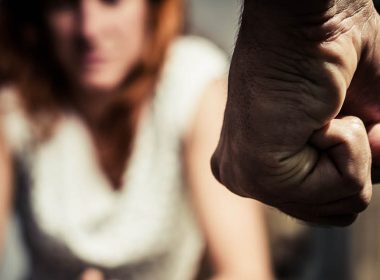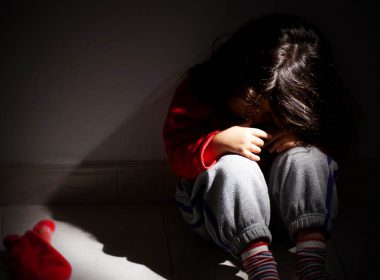I know plenty of women who have ended up homeless as a result of fleeing violence. I know of many women who describe leaving the violent relationship as the easiest thing.
In NSW, 38 people died due to domestic or family violence in the 12 months to March 2019. A groundbreaking new report has put the impacts of this violence under spotlight - revealing the lasting ripple effects it can have on victims and their families.
A few weeks after Rachael Natoli left her abusive husband after years of physical, psychological, financial and sexual violence, she admitted an unbearable truth.
“Around that time I said to people, ‘I wish I had stayed’,” Rachael tells LSJ in a wide-ranging interview.
“As bad as it sounds, you learn to manage the behaviour, which you cannot do all the time because there are still outbursts of violence, but you learn to live with it.
“I don’t think people – unless you have experienced it – understand how perpetrators continue to inflict systemic abuse, whether that is dragging out court proceedings to leave you broke, or sabotaging your attempts to get support.”
Rachael, who is now using her experience of violence, navigating the courts and negotiating with a complex social service system to help others permanently leave violent relationships, revealed to LSJ her despair at trying to rebuild her life in the aftermath of eight years of abuse.
Shortly after she left, her now ex-husband attempted to sabotage her plans to find new accommodation by ringing a local housing office and telling them she had property and hidden bank accounts overseas.
Her application for rental assistance was temporarily suspended as she was investigated to prove she was eligible for the support that would enable her to find safe and secure accommodation; at the time she was living in a refuge with two young children.
“The support is cut off while they investigate the complaints. I understand they have to do their due diligence, but there should be some way to continue support while they investigate,” Rachael says.
“Particularly in circumstances when these allegations are made by perpetrators with a history of financial and systemic abuse, surely there is a case for viewing these claims with a pinch of salt.
“In doing this, a perpetrator continues to inflict as much control and destruction on you as they possibly can. Court proceedings can drag on for years; it isn’t just dealing with an AVO on the criminal side. Perpetrators can continue with their financial abuse, to drag out court proceedings indefinitely so they can make sure you are left with nothing.”
“A perpetrator continues to inflict as much control and destruction on you as they possibly can. Court proceedings can drag on for years; it isn’t just dealing with an AVO on the criminal side.”
– RACHAEL NATOLI, family violence survivor
A maze of problems
Rachael’s story is horrific, but sadly not unique.
The past decade has seen unprecedented investment in the prevention of family violence from state and federal governments. Two organisations, Our Watch [standing for ‘Our Women and Their Children] and ANROWS have been established as national prevention and research bodies.
There are awareness days, ribbon campaigns and scores of high-profile advocates, yet the statistics remain grim.
If you are a woman reading this who has not experienced domestic abuse, it is likely that someone you know has.
According to the most recent data published by the Australian Bureau of Statistics, one in six Australian women has been subjected to violence from a current of former partner since the age of 15.
In Australia, 21 women have been killed this year due to domestic and family violence. In NSW, 38 people died due to domestic or family violence between March 2018 and March 2019 – almost 20 more deaths than in the previous 12 months.
According to the latest crime data from the NSW Bureau of Crime Statistics and Research (BOCSAR), there was a 6 per cent increase in domestic violence assaults in the two years to March 2019, although the Bureau’s Director Don Weatherburn believes this could be due to a more proactive policing approach and increased rates of reporting.

A recent landmark report from the NSW Law and Justice Foundation also revealed that, in addition to suffering violence, those leaving abusive relationships are 10 times more likely to suffer multiple legal problems.
The report, Quantifying the legal and broader impacts of domestic and family violence, drew on the results of more than 20,000 interviews with Australians conducted at random; the largest representative population survey of its type in the country to date.
The findings revealed those who had experienced domestic and family violence faced, on average, 20 legal problems in the past year across criminal, civil and family law jurisdictions, compared with just two for those who had not experienced violence.
Those legal problems were subsequently more likely to lead to illness, financial strain (including loss of income and issues with credit debt and Centrelink payments), relationship breakdowns and the need to move home quickly.
The Foundation’s Senior Principal Researcher Christine Coumarelos tells LSJ the findings demonstrate the need for better information sharing between state and federal government agencies.
“For women, having to deal with multiple systems is not only inefficient but it could lead to them remaining in a violent situation where they are not safe,” Coumarelos says.
“The really critical point is that all of these legal problems lead to broader life problems, ranging from stress-related illnesses to being at risk of homelessness, where one in eight people who have experienced domestic violence have been homeless or living in temporary accommodation.
“The findings on these adverse problems show how difficult it can be to leave a violent situation. There is still a family law problem; our research shows that victims of domestic violence are 16 times more likely to experience issues in the family court compared to those who have not suffered abuse. Those numbers demonstrate a need for more coordination between support systems.”
A difficulty that victim-survivors, researchers and policymakers all point to is the separation between Commonwealth and state support services, meaning many are forced to visit multiple agencies and explain their situation multiple times.
“There are three main systems they may have to navigate – the family court system, the state system to assist with issues such as housing, as well as the state criminal proceedings – and those systems are not always talking to one another,” Coumarelos says.
“[Victims] have to feel they are safe and able to get out of a violent situation, and the divide of Commonwealth and the family court process from the state process is difficult to navigate.”
The Australian Law Reform Commission’s recent report into family law recommended that family law disputes be returned to state and territory jurisdictions, due to the concern that “children are falling into harm because of gaps between the federal family court and state and territory courts, child protection services and police.”
 Rachael Natoli
Rachael Natoli
Tackling the issues head-on
Rachael described the weeks following her decision to leave the relationship for good almost four years ago as “just the tip of the iceberg”.
“So much more happens in the months beyond that and having to retell your story over and over again to various support services is incredibly re-traumatising,” she says.
“I know plenty of women who have ended up homeless as a result of fleeing violence. I know of many women who describe leaving the violent relationship as the easiest thing.”
In detailing the complex legal problems that confronted her after leaving years of abuse, Rachael still believes she was one of the lucky ones.
“I was really lucky to have such an amazing caseworker who came to court with me and continued to support me, even when I moved to a different area,” she says.
“I was lucky to have such consistent support because so many women are lucky to have a caseworker with them for six months, let alone more than 12 months.”
That support she received drove her to establish the Lokahi Foundation, which offers case management support to women in Sydney to help them re-establish physical, emotional and financial freedom.
“If every woman and family could have a caseworker as good as mine, I believe that when more women left the first time they would not feel like they had to return to the violent situation” Rachael tells LSJ.
“If there was someone there to hold their hand through that initial navigating of the system, we could reduce that statistic where on average women return to a violent relationship up to eight times before leaving for good.”
Hayley Foster, Director of the NSW Women’s Domestic Violence Court Advocacy Service (WDVAS), which provides advocacy and crucial support in 29 locations across NSW, tells LSJ “we need to stop victims of domestic and family violence, and children in particular, from falling through the cracks”.
“We know we’re only supporting around 50 per cent of women and their children with automatic referrals from police, and that women accessing health and other family and community services are not necessarily being referred for the same support. The Law and Justice Foundation study is further evidence of [the myriad] legal problems women face,” Foster says.
“Whilst this will be a process which will take some time, adequate funding of [the Federal Government’s] Family Advocacy Support Services is something we can do right now to increase safety and improve outcomes.”
The NSW Government recently announced an additional $40 million over the next three years for the state’s community legal centres, as well as $390 million over four years as part of the 2019/2020 State Budget.
NSW Minister for the Prevention of Domestic Violence and Sexual Assault Mark Speakman has also pointed to the completed state roll-out of Safer Pathway, as an initiative that “brings multiple human and legal services together in a one stop-shop”.
“[Through Safer Pathway] victims have consistent access to coordinated support that suits their individual needs,” Speakman said in a statement.
Law Society of NSW President Elizabeth Espinosa tells LSJ the statistics surrounding domestic and family violence – including that it is the leading cause of death for women under the age of 45 – were a major contributor to the Society’s decision to support Our Watch as its charity initiative for 2019.
“When it comes to family and domestic violence, those working in the legal profession and other support services are all too familiar with the real, lasting and often tragic consequences of violence against women and children,” Espinosa says.
“While the physical, emotional and social impacts have been well documented, what is concerning is the extent of the legal impact on those caught up in domestic and family violence here in Australia – as revealed in the Law and Justice Foundation paper.
“The Law Society of NSW believes there is an urgent need for family law reforms that provide the best outcomes for Australian families who rely on the family law system to help them resolve complex and emotional disputes, often within the context of the insidious and increasing scourge of family violence.
“When it comes to domestic violence, we all have a role to play in changing the story and I want to ensure that the Law Society plays its part in promoting and supporting the work of Our Watch, raising funds and keep this issue on everyone’s radar.”
The Lokahi Foundation has recently secured funding from the Federal Government and is set to employ a full-time caseworker.
“Because I am a survivor of abuse, people relate to me,” Rachael tells LSJ. “They know I have lived in a refuge, that I have had to navigate the system and use support services, and that I continue to need recovery support.
“We need to provide support for women in the long term, which is why I set up Lokahi Foundation. Being able to support women in the long term, for the years after they leave the violent relationship, is critical in helping them find re-empowerment.”

If you or someone you know is impacted by sexual assault, family or domestic violence, call 1800RESPECT on 1800 737 732 or visit www.1800RESPECT.org.au. In an emergency, call 000.
Learn more about the Lokahi Foundation,WDVCAS and Our Watch.




